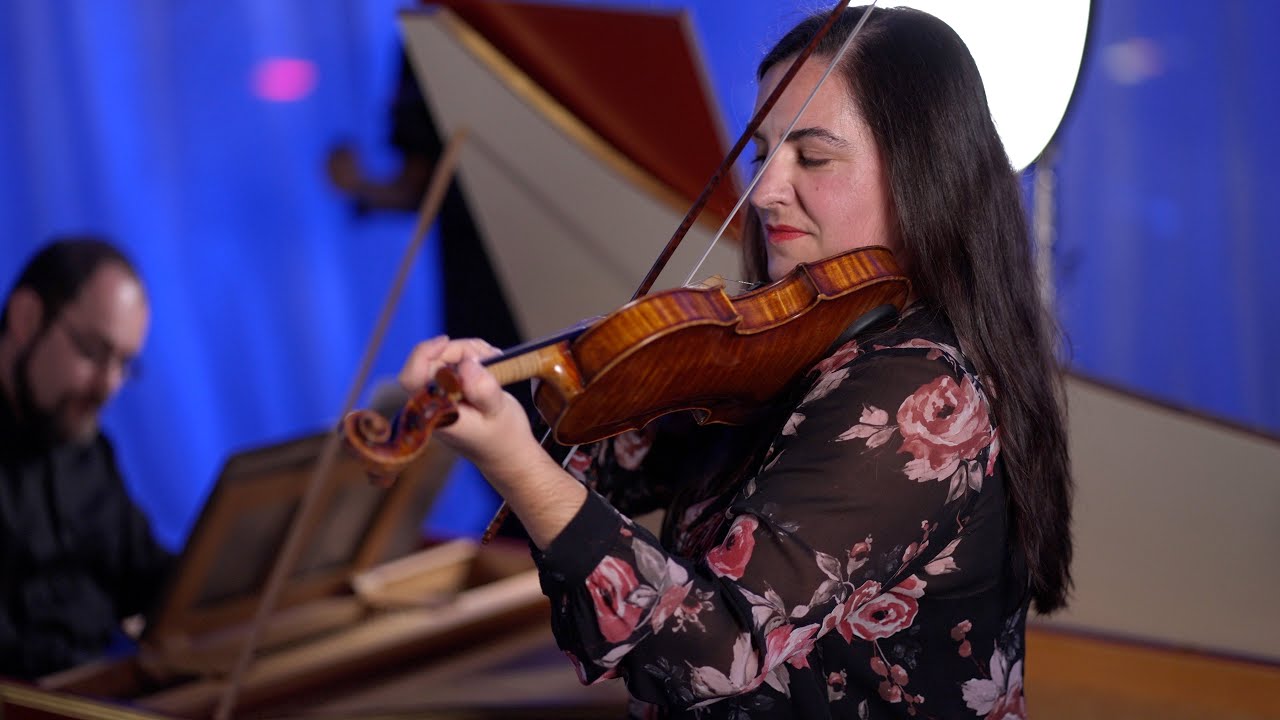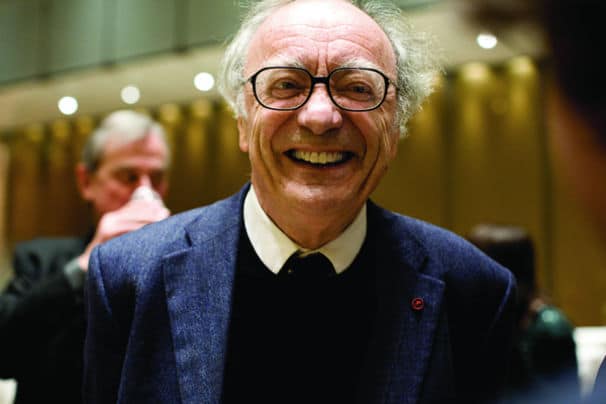It’s Finn chief for Finn at London’s Philharmonia
mainThe orchestra today announced Esa-Pekka Salonen’s successor.
He is Santtu-Matias Rouvali, 33, a fellow-Finn.
Aside from the new conductor’s youth and energy, it’s not the smartest appointment in the present climate.
The Philharmonia has been losing profile under the absentee Salonen. It will not gain much from appointing a double-barrelled, relative unknown of identical origin, albeit from a very narrow field of tested candidates.
The South Bank orchestras these days seem to look no further than the end of their noses.
The Philharmonia last week parted company from its managing director. Perhaps we can now see why.

Rouvali has signed a five-year contract to work with the Philharmonia for 10 weeks a year. He remains chief conductor in Gothenburg, Sweden, with a new contract taking him up to 2026.
From the press release:
Santtu-Matias Rouvali was born in Lahti, Finland, where his parents were both members of the Lahti Symphony Orchestra, and he grew up in and around the orchestra. Trained as a percussionist and with experience playing drums in rock bands, he took up conducting at a young age, and studied at the Sibelius Academy. His first principal conductorship, which he still holds, was in Tampere, Finland, where the orchestra has had to repeat concerts because of the “Santtu Effect” on audiences for classical music in the town.
UPDATE: Several players have told us they are excited. Maybe they are right to be.
On the other hand, there was a time that the public took a keen interest in who headed the London orchestras. No more.





I don’t remember who said that ‘conducting is a profession for a musician’s second life half’. It seems that it is a profession mostly for those in the first half of their life. Very worrying, in my opinion.
If only more people lived by that quote instead of us having to endure swathes of post-adolescent ‘maestros’ making careers on the backs of professional orchestras who fight tooth and nail not to let themselves sound shoddy.
High profile appointments of conductors in their early 30s is nothing new. The Concertgebouw, no less, appointeed Haitink and Chailly as music directors when they were in their early 30s. We should not judge musicians by their age.
What bothers me is the media hype around young or female conductors, which is often very disconnected from their musical abilities or experience. It puts less media oriented but highly qualified seasoned conductors’ careers to a disadvantage.
I wish I had written this comment.. 🙂
This “double-barrelled, relative unknown” has been already engaged by the likes of the Berlin Philharmonic, Concertgebouw (debuting there in the coming year) and the Los Angeles Philharmonic and has been generally met with a good reception. His podium choreography may be a bit wild, but seems to be appreciated by the professionals he works with. One can argue that these multiple very dilute chief conductorships of ten weeks here, eight there, and four there are not ideal for anyone involved, but that remains to be seen.
Oh, these so called ‘chief conductorship LIGHT’ are great for SOMEONE, the agents. The more musicians fly around, the more the agent makes.
The more stationary a musician is on the other hand, the less percentage is justified for an agent.
Indeed. I don’t think most people on SD know what and agent does, the money they (agencies) make with their business; the kind of pressure they put on those deciding hirings and contracts at festivals, cometitions, theatres, and orchestras to get their clients hired (and make agencies a LOT of money with it); and the dirty (and sometimes unethical) things they sometimes do to keep their business making them very rich. It is their fault (through their PR) that sometimes untalented and unprepared musicians are pushed into major careers they are never prepared for. It is their fault that Dudamel and Lang Lang are considered by the (uneducated) media to be the top figures in the noble art of music, that unprepared conductors in their 20s get music directorships, and in general, that musicians are more important now that the music.
right hand – figure of eight (the horizontal type), left hand – early Parkinson’s, walks in circles around the podium (and fell off it the last time I saw him), keeps his rhythm by bending his knees,
an optical distraction, and all of this, all the time, no matter what the dynamic or tempo.
But it’s all about the young, exxxxciting energy, isn’t it?
I wouldn’t mind so much if a supposedly musical conductor, described as a “wizard” by the departing manager of one of his three orchestras, knew when the music was important than his own endless gyrations. When the arms continue to sail in every possible direction during the accompaniment to the quietest moments of Four Last Songs of Richard Strauss (which he conducted last December), causing a huge visual distraction to both the soprano soloist and the audience, this does not inspire a lot of confidence.
Mr. Lebrecht, could we have the link to his toe-curling photo shoot of scenes from the life of Sibelius, please?
I’ve seen Rouvali live with concerts in Munich and Bamberg. The Munich Philharmonics are doing Prokofiev all the time with Gergiev. But this No. 5 blew me away, such energy, drive and motion…even the musicians applauded him after the concert and that’s rather rare in Germany with “high profile” orchestras, special even considering their Gergiev/Prokofiev experience ;-).
His new record of the Sibelius Symphony No. 1 is one of the best in years, I can really recommend it. I like this guy a lot, congrats to the Philharmonia!
Energy, drive, and motion is what audiences (even more so to those with little concert experience) like seeing, not what makes good music. Please attend concerts with your eyes closed and your ears “wide open”.
FrauGeigerin,
I read with pleasure your comments on SD. You are obviously someone who knows the music world and the profession very well. I find your comments always pertinent, logical, and insightful.
“Energy, drive, and motion” is what I personaly expect from a good performance of Prokofiev No. 5 and nothing less. His interpretation of “En Saga” (same concert) on the other hand was very broody and atmospheric, rather slow but intense. So he can do both…
Btw, how many times have you yourself seen (or hear) him conduct? That’s more “concert experience” for me then, at least with Rouvali.
I have indeed seen him conduct. I was not impressed, but he was definitely not the worst conductor I have seen him lately. If you think all the movements he makes (what you call “drive, motion, and energy”) make any difference in how an orchestra sounds, then you don’t know well what an orchestra needs from a conductor.
By the way, I have played under all major conductors from the last 25 years, first as tutti in the orchestra of a top opera house, and since a few years ago as concertmaster of a major orchestra playing both concert and operatic repertoire. I can tell inmediately who is a good conductor and who isn’t, and know very well what we need from a conductor to give a great performance… by the way, that is not always what audiences want to see (they expect the whole visual show: crazy movements, massive gestures, weird faces…).
The other week I saw a pretty big-name conductor put on a show with his gestures, and it seemed like there were a lot of technical errors, such as huge down beats as if there was going to be a fff eruption from the orchestra but there were none, and then small gestures to indicate that the orchestra play quietly when the notes were played loudly (as the score indicate).
I’ve always wondered what musicians think of that.
The reality is that professional orchestras will give always acceptable performances (the top orchestras even good performances), regardless of the conductor standing in front of them. It is in the nature of every professional musician to give good performances, never mind the circumstances…. we are trained to overcome errors (self and others) and problems and give it all to save a performance and always deliver. Orchestras work in the same way: orchestras (particularly good ones) develop a communal ‘conscience’, dictating how to work a piece, how to breath, to play together etc. compensating the lack of help and true musical leadership from the conductor. Orchestras will play together and a musical way, despite having a terrible conductor in front of them. All the arm waving monkeys, moving like crazy, sweating, making funny faces etc. (basically serving themselves and not the orchestra and the music) are useless for us… yes they might make the right upbeat in the right place helping us to play together, and might convey some musical aspects, but that is not what we need…. We need direction, clear tempo and upbeat indications and not much more; all the rest is theatre for audiences and the conductor’s ego. There are some great conductors who understand (-stood) that (Haitink, Abbado, Kleiber, Colin Davis, Gatti, Muti, Maazel, Jansons among others), but there is a new generation of both men and women who think large gestures, excesses of energy, faces, sweating, mimics, and dancing on the podium is what the orchestra needs. And there is a new generation of audiences who need the visual aspect of a concert as much as the music to enjoy a concert, and those need the podium-dancing monkeys delivering visual entertainment.
I get very worried when I think how concerts are going to be once the millennials take over as audiences, as concert managers, as critics….
An orchestra musician sees and plays only one line of the music. Your point of view will inevitably miss the the bigger picture. Your “needs” as an orchestra player is not what is most important to the music.
And you are? You’re say you’re such an expert? I think you know nothing of the business